One of the Great Greek Philosophers of the trinity (the other two being Socrates and Plato), Aristotle’s personality and character is little known. Born to an aristocratic family (C. 384 B.C.), his father, Nicomachus, served as the physician for the Macedonian King.
Aristotle was closely affiliated with and influenced by the Macedonian court. At a time when Athens was considered the academic centre of the universe, he was 17 when he left for Athens to pursue higher education.
A powerful orator and a comprehensive lecturer, he was very persuasive in his arguments, adducing scientific along with rational ideas, which was hitherto condoned by his predecessors.
He was an enthusiastic learner in Plato’s Academy, who questioned Plato’s theory of Forms. There was a paradigm shift in philosophy and ethics after Aristotle. Besides that, he devised logical reasoning (Syllogism) and dialectic argumentation.
The horizons of philosophy, nature, metaphysics and rhetorics widened subsequently and at the helm stood the unparalleled scholar, Aristotle. To delve into his specific works would surely command a book. Thus, in this article, I have enumerated 10 of his most notable contributions:
10. Aristotelian Physics
Content
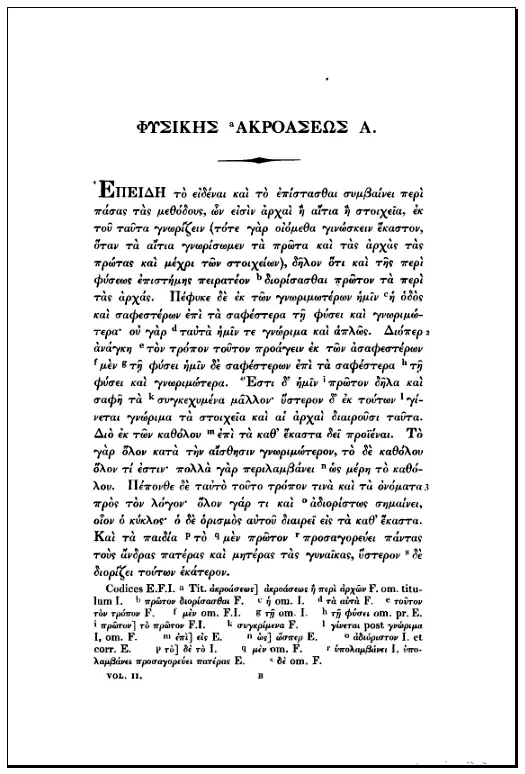
Aristotle established his school called the Lyceum, on the other side of the city as Plato’s Academy. Lyceum stood amidst nature, where his pupils along with him trailed around the park shrouded with large trees and discussed the matters of philosophy.
Even for Aristotelian Physics, physics was essentially the study of nature, which was fundamentally akin to change. He gropes both the nature of changes and the changes in the natural environment, collectively written about in his book, Physics.
Physics includes a dichotomy of subjects and their explorations: one being on nature (book 1-4) and the second being motion (book 5-8). He has defined, explained and argued about cause, action, time and place.
The basis of Aristotelian Physics was that all matters of the world assumed the position of rest. He categorized the earthly region and the region beyond the earth’s surface as terrestrial and celestial respectively.
He also cited that the earthly bodies had four crucial elements: earth, water, fire and air. The celestial or heavenly bodies were fundamentally a part of an inexhaustible and unchangeable property called ether.
Also, he argued that heavy objects fall slower than lighter ones, implying that the rate of motion of an object depends upon its mass. Though rejected in the vanguard of intelligent scholars, he was the pioneer physicist. His theories survived for more than a millennial.
9. Aristotle and Rhetorics
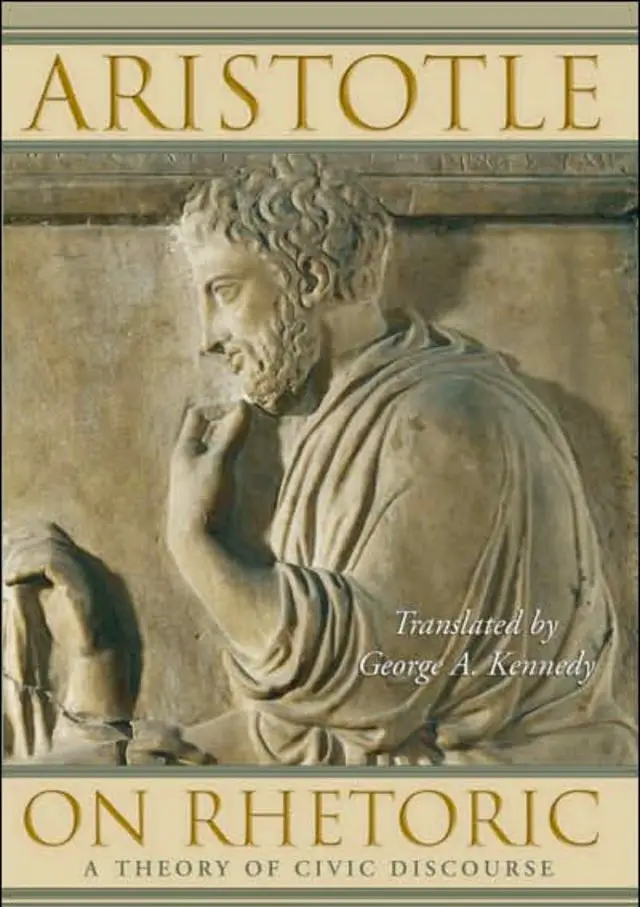
As the Father of Rhetorics, Aristotle surmised five main elements of rhetorics, which he claimed are equally necessary for philosophy as dialectics. Along with logos, ethos and pathos are telos and kairos, which are the ingredients for the most persuasive argumentation ever advanced.
In his book, Rhetorics, he has distinguished each element, from reason to the perspective of the author and finally an emotional appeal, best elaborated in his same work. This technique was not only adopted by peripatetic writers; the trajectory of its success reached Roman philosophers such as Cicero.
Before Aristotle’s rhetoric, the philosophers emphasized merely logic and dialectics.
He defined it as being utmost persuasive and convincing at all circumstances imaginable. It deals with the speaker’s style, his credibility and the emotions at play. The tripartite factors, if articulated well, enable the speaker to connect with his audience.
Although it is a difficult book, the techniques mentioned in the book remain useful to date as a means of good communication skills.
8. Contribution to Art and Literature
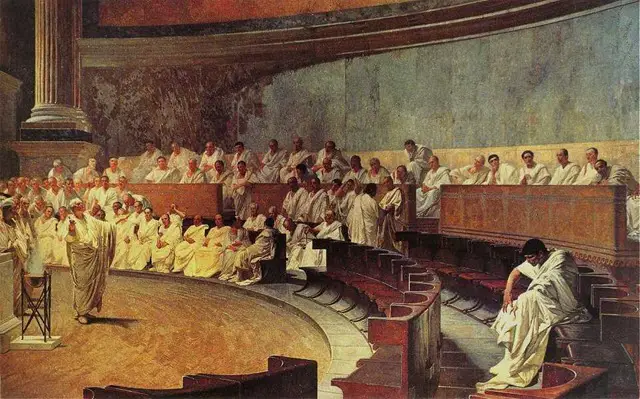
Aristotle composed six texts on literature and the art of oratory. But only two of them have survived, one being Poetics and the other being Rhetoric.
Poetics is a text of fifty pages and 26 chapters. It mostly concerns tragedy, the most developed form of art during those times. It also illuminates Aristotle’s rejection of Plato’s ideas of dualism and rationalism.
While Plato might have argued that mimesis or imitation is a mirroring image, Aristotle rectified it in his book as the only basis of learning, embedded in humans.
He refused to distinguish art as solely good or bad but as something that stirred our emotions and compelled us to think. Eventually, he claimed, art would purge all negative emotions and replace it with an enthralling experience by affiliating it with the doctrine of Catharsis. Especially brought about by witnessing the devastating plots of the protagonist in any tragedy.
Most of Poetics is concerned with the six crucial factors that an ideal tragedy requires: the storyline, characters, theme, music, etc. It elaborates on the scope and proper setting by illustrating real-life examples of tragic dramas by Sophocles.
Poetics is the only surviving analytical text reflecting the origin, purpose and effect of drama in ancient Greece. His principles were rife in the tragedies of Western Europe for over many centuries.
7. Economic Thought
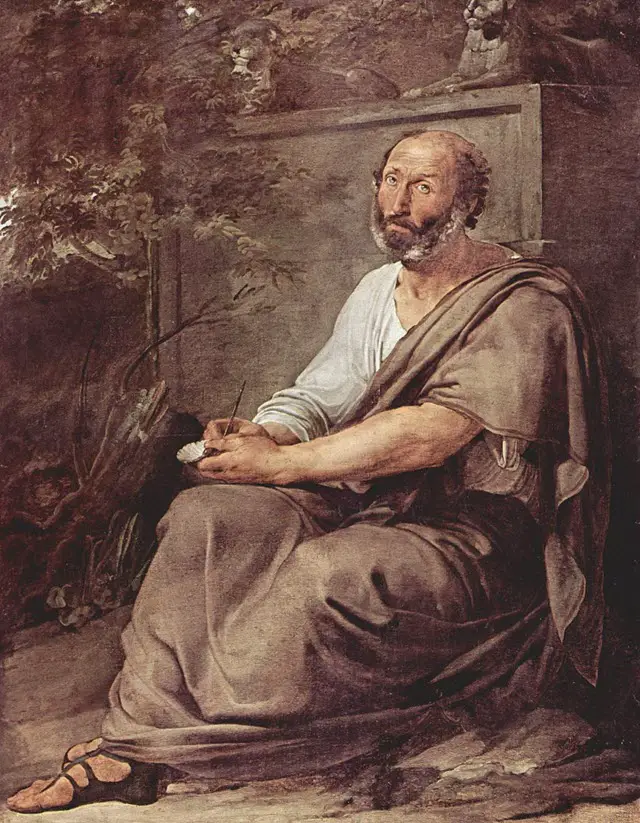
Aristotle was the first person to condense analytical economics and incorporate science in economics. Although he was a student of Plato, he differed from him for many reasons. Ethics and Politics are the books that surmise his thoughts on politics.
For him, the purpose of the state was to serve the statesmen. He cited that an Ideal State consisted of the rule-makers and those obeying them. Thus, in sharp contrast to that of Plato’s, we can say that Aristotle’s ideas were rather conservative.
Similarly, he favoured private property to public property, positing that people attended to their business more if they owned it rather than when everyone had their interest in it. This way, the state would transition from communism to capitalism, where each would receive their share that they deserve.
Besides this, his theory of money was the most successful one. He implied its importance and placed value onto it. He replaced the existing idea of ‘money as a medium of exchange’ with its intrinsic value.
Thus, he preferred a non-communist state where the laws would incur the use of money. While there is no treatise on Economics by Aristotle, the Middle Age writers borrowed most of his ideas.
6. Political Philosophy

Aristotle’s Political thoughts fall under Practical Science, concerned with good deeds and reformations. The central idea of his Politics is that the ends or objective of a state is to impart happiness and virtue.
The heart of a state is its constitution (politeia), which binds together the statesmen and resources in its laws. The operation of these laws exemplify prosperity and serve the state’s objectives. It is of paramount importance while the topography and ethnicity of people are also important determinants.
His method was a close observation of phenomena and had studied about 158 constitutions of the city-states. Later, he defined various forms of political cohesion such as democracy, aristocracy, polity, monarchy and oligarchy. Much like his teacher, he was not in support of democracy but preferred polity.
However, he compared the tasks of a politician to that of a physician. It implied that whether it was monarchy or democracy, it had to be best suited for the state. Since he considered politics as a practical science, there was no hard-and-fast system of governance. He advocated a close observation and extensive study.
It could take years to fully comprehend Aristotle’s political philosophy, which the writers of the Middle Ages devoted their life.
5. Contribution to Ethics
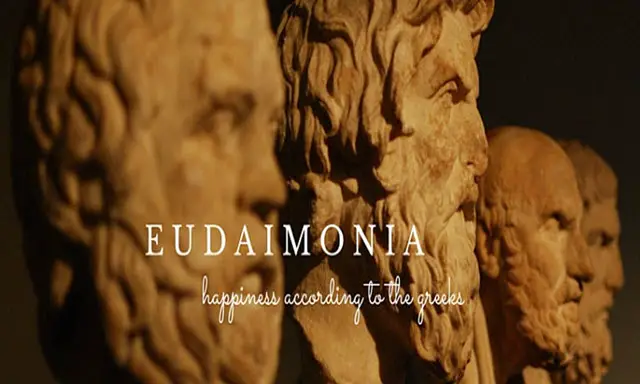
We all know that Aristotle and his predecessors emphatically proposed living a good life. What does a good life consist?
Aristotle’s Ethics answers the above question. He cited that qualities such as eudaimonia (fulfilment) and arete (virtue) should be instilled in humans to live truly well.
He insisted that ethics is not a matter of theory, for merely stating the good qualities was a piece of cake. What he suggested was that one needs to imbibe them-qualities of good friendship, honour and courage.
Moreover, he was concerned with the highest good possible; the best among bests, which was an end in itself. Nobody else had conceived the idea that happiness was not virtue per se, but the byproduct of activities dedicated to virtue.
Deducing, Nicomachean Ethics strives to that one virtuous quality at the gates of which all other common names such as health, wealth, happiness are subservient. It was more or less the state of clarity of the soul and its connection with the divine.
4. Father of Metaphysics
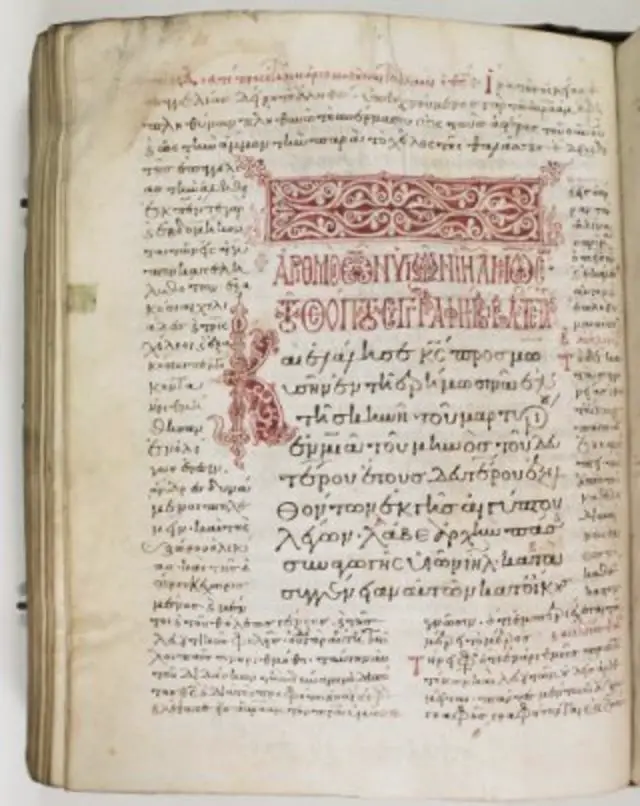
Aristotle’s Metaphysics (literally after Physics) advanced a new discipline under the same name in Philosophy.
Before venturing to press his theories on metaphysics, he begins book A with the evaluation of established beliefs and citations of his predecessors. According to him, this is the ‘first philosophy’.
He rejects the idea of Plato on Forms and furthers his arguments on the universal principles, abstract notions and on existence itself. Primarily, it strives to derive wisdom.
According to him, wisdom can be attained not merely by senses but by channelling our knowledge scientifically. Wisdom dawns only by understanding the principles of the universe and its working mechanism.
The epic spans 14 books or at least that which is extant. Each book dwells on separate topics such as preliminaries, the law of contradictions and teleological explanations. Among which perhaps the most paradoxical is his theory of changing substances.
He divides substances into three types and illustrates the Unmoved Mover as the ultimate pure substance. Comparing it to God, he attributes contradictory statements such as the causal factor of everything yet remaining detached.
3. Aristotle on Psychology
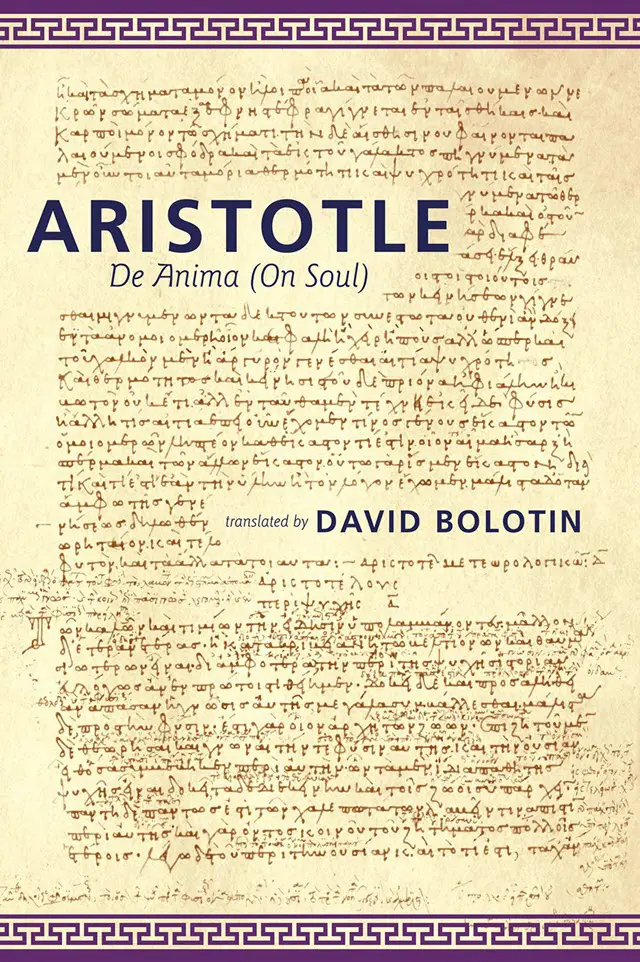
As a scientist and a polymath, Aristotle gathers the spotlight amidst other Greek Philosophers as the propounder of psychology and its implications. He rejected Plato’s percepts, claiming that they lacked empirical observations. Later, he went on to propound his theories qualitatively and quantitatively.
He built on the previous works to prepare the first-ever written book on Psychology called Para Psyche or About the Mind. As the Greek philosophers used the word mind and soul interchangeably to define psyche, he hasn’t refrained from the same fashion.
In his book De Anima (On the Soul), he has attempted to correlate the two faculties of animals: psychological and physiological. He postulated that the soul, body, and mind are the assets of beings. While the brain is the function of the body, the body is the medium through which the soul emotes.
He also distinguished them into matter and form, maintaining that the psyche was the form part. He studied the senses and differentiated them from experience. He argued that the psychological dispositions of humans are affected by early life, experiences, habits and our surrounding environment.
Thomas Aquinas interpreted Aristotelian psychological thoughts to merge it with metaphysical Christian principles. Aristotelian ideas also provide a comprehensive and modern approach to Psychology.
2. Founder of Biology and Zoology
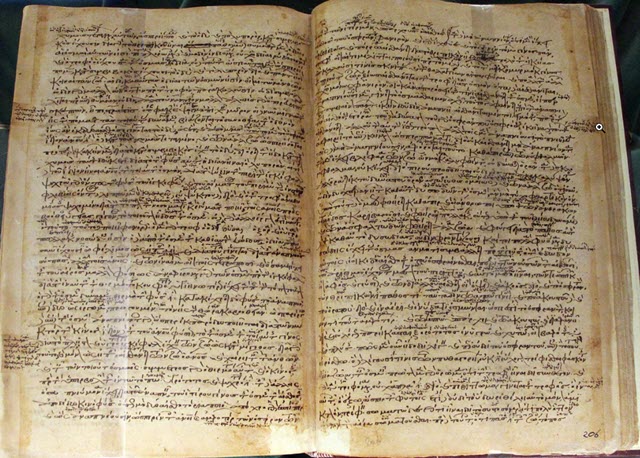
When we unravel the history of Biology, the first name to appear is that of Aristotle. He compiled methodical sampling and empirical study of the natural world into a book which is the earliest known work on biology.
The Father of Biology, despite rudimentary techniques, approached the natural world with scientific inquiry. Some of his notable works in the field of Zoology are The History of Animals, The Parts of Animals, On Plants, etc.
His careful study of the embryo of birds led him to the conclusion that the heart was the first organ to develop. Based on the same verifiable conclusion, he propounded the theory of Epigenesis, which counter-attacked the prevalent belief that organs were inherently present and bulked as we grew older.
Obtaining both exotic and ordinary animals, he systematically grouped them based on their physiological similarities and differences. Taxonomy is perhaps the most significant move made by Aristotle.
He meticulously dissected organisms and recorded data that provided a template for the future evolutionary theorists. It was in the hands of Islamic scholars and later passed on to the rest of the Western world.
1. Syllogism
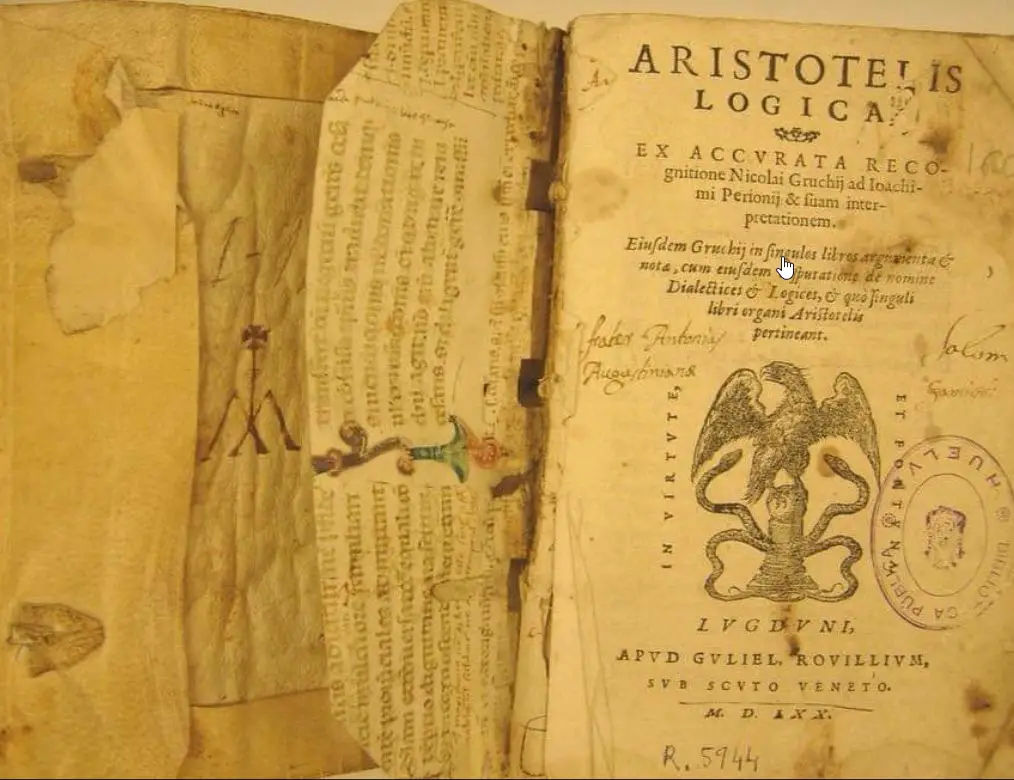
When someone categorically denies something, he/she is instantaneously referring to Aristotle and his theory of Categorical Logic. This and Syllogism are a system of reasoning propounded by Aristotle and most famously known.
He believed that our minds boxed everything-from experience to sensations to thoughts. In pursuit of understanding this mechanism of fragmenting thoughts and their correlation, Aristotle conjured up a branch of learning, Logic.
Our thoughts could take up infinite categories so to ease the process, distinguished common patterns as syllogisms. It is in our capacity to grasp these syllogisms.
It is a method of deductive reasoning, conducive of an infallible argument or speech, which has two premises and a conclusion. Its function is to derive a valid conclusion based on mere assumptions. It is further elaborated in the Organon and rectified from old logic in Prior Analytics. It was considered as a complete body, requiring no further explanations by most logicians.
It might seem like a tiny accomplishment of 350 BCE, but it was through a similar process of understanding logical expressions that help build a computer. Aristotle’s theory was pivotal in the history of Western Philosophy.
Conclusion
Aristotle is inarguably the First Teacher, incorporating both philosophical and scientific outlook towards everything. In a nutshell, as a scientist, he divided science into three types: Contemplative Science, Productive Science and Practical Science.
Also, he fostered astronomical, geographical, zoological, anatomical, embryological and meteorological areas. He was equally involved in fine arts, drama, poetry and literature.
For the immense influence he exerted on a plethora of subject matters, Aristotle has rightfully established his position not only as one of the greatest philosophers in ancient Greece but the whole of the history of humankind.
